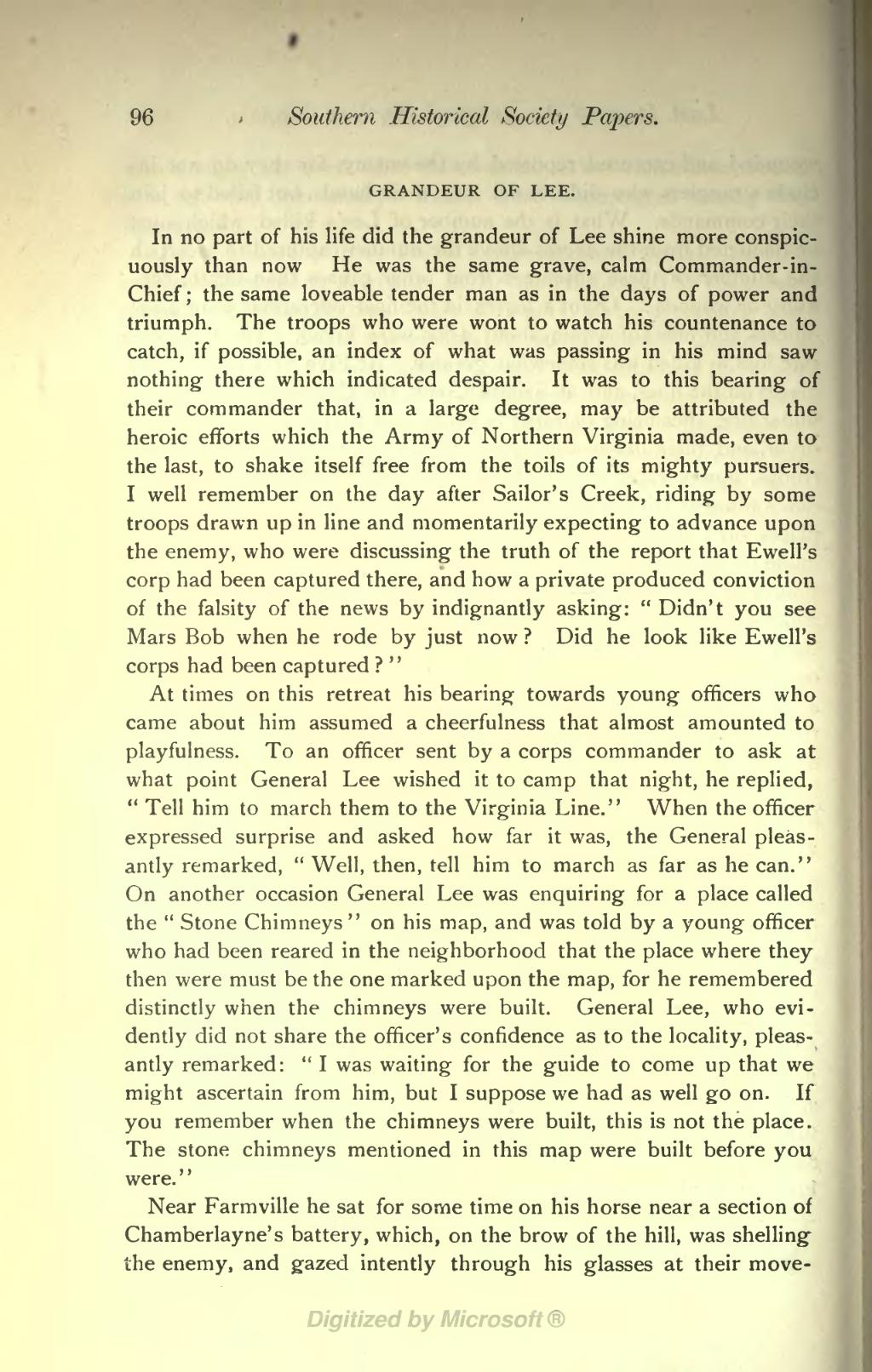96 Southern Historical Society Papers.
GRANDEUR OF LEE.
In no part of his life did the grandeur of Lee shine more conspic- uously than now He was the same grave, calm Commander-in- Chief; the same loveable tender man as in the days of power and triumph. The troops who were wont to watch his countenance to catch, if possible, an index of what was passing in his mind saw nothing there which indicated despair. It was to this bearing of their commander that, in a large degree, may be attributed the heroic efforts which the Army of Northern Virginia made, even to the last, to shake itself free from the toils of its mighty pursuers. I well remember on the day after Sailor's Creek, riding by some troops drawn up in line and momentarily expecting to advance upon the enemy, who were discussing the truth of the report that Ewell's corp had been captured there, and how a private produced conviction of the falsity of the news by indignantly asking: " Didn't you see Mars Bob when he rode by just now ? Did he look like Ewell's corps had been captured ? "
At times on this retreat his bearing towards young officers who came about him assumed a cheerfulness that almost amounted to playfulness. To an officer sent by a corps commander to ask at what point General Lee wished it to camp that night, he replied, " Tell him to march them to the Virginia Line." When the officer expressed surprise and asked how far it was, the General pleas- antly remarked, " Well, then, tell him to march as far as he can." On another occasion General Lee was enquiring for a place called the " Stone Chimneys " on his map, and was told by a young officer who had been reared in the neighborhood that the place where they then were must be the one marked upon the map, for he remembered distinctly when the chimneys were built. General Lee, who evi- dently did not share the officer's confidence as to the locality, pleas- antly remarked: " I was waiting for the guide to come up that we might ascertain from him, but I suppose we had as well go on. If you remember when the chimneys were built, this is not the place. The stone chimneys mentioned in this map were built before you were."
Near Farmville he sat for some time on his horse near a section of Chamberlayne's battery, which, on the brow of the hill, was shelling^ the enemy, and gazed intently through his glasses at their move-
